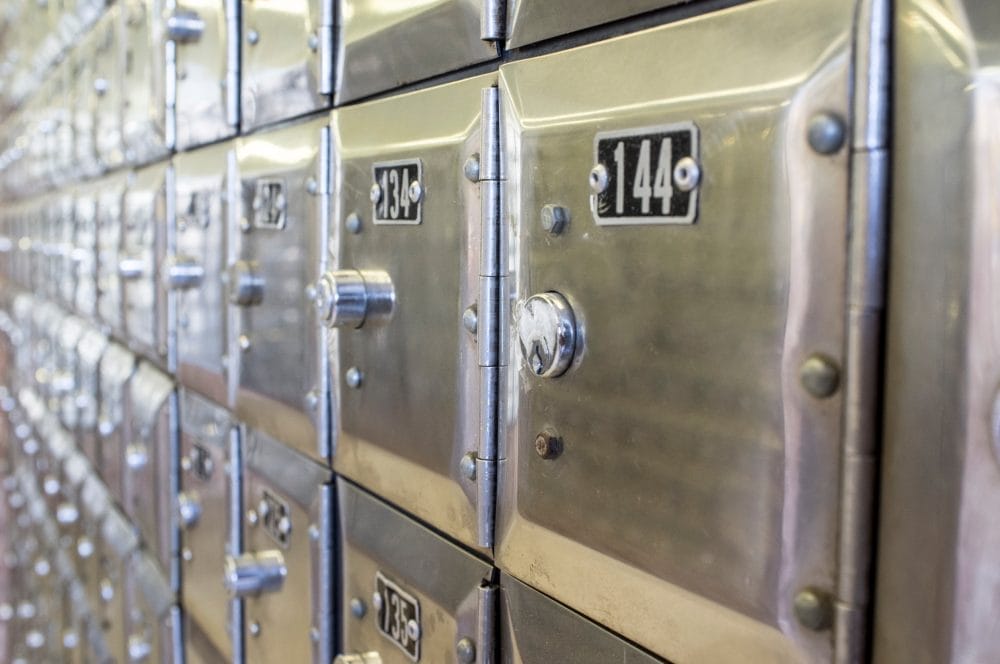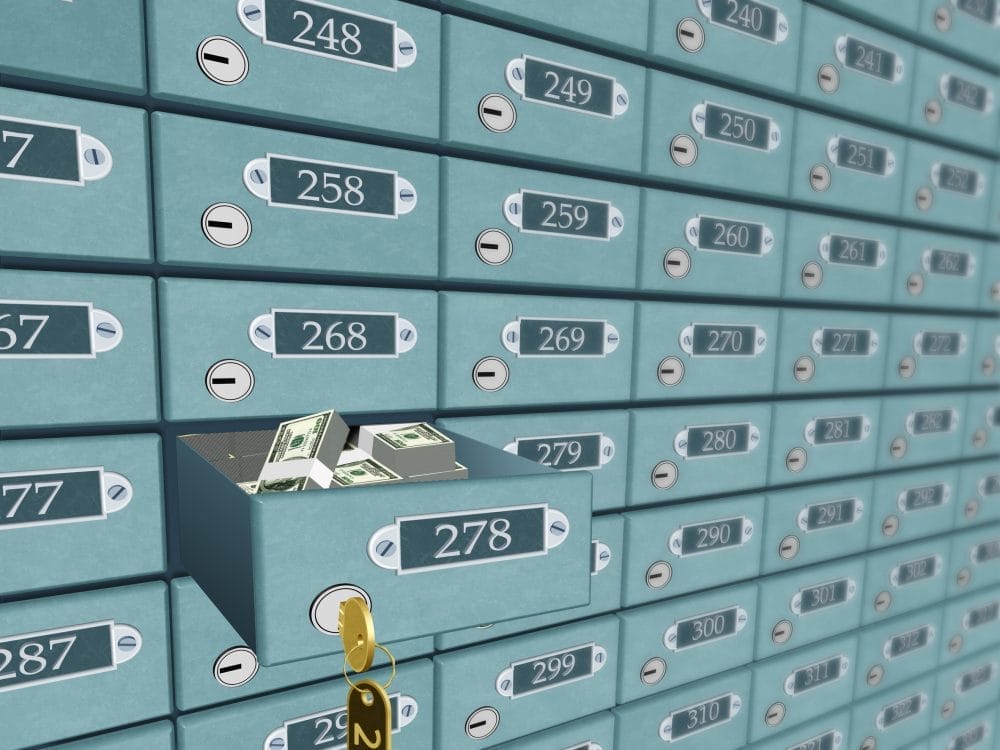When a loved one passes away, someone rushes to the bank with the key to their safe deposit box, hoping to grab important papers—or maybe something a bit shinier. It feels like a quick, responsible move.
But just because someone has the key doesn’t mean they have the legal right to open that box. In fact, unauthorized access to a safe deposit box after death can lead to serious legal trouble, including criminal charges. What looks like a simple errand can turn into a major probate violation faster than you can say “executor.”
Possession of the Key Isn’t Legal Permission
Having a key to a safe deposit box might feel like holding the golden ticket, but it doesn’t mean access is allowed after death. Banks follow strict rules, and once a box holder dies, the contents become part of their estate. Only a court-appointed executor or administrator has the legal authority to open that box. Anyone else, even a spouse or child, could be breaking the law by accessing it without court approval. It’s not about intent—it’s about legal authority.
The Bank Is Required to Freeze the Box
As soon as a bank is notified of the account holder’s death, they’re obligated to lock down the box. This means even joint box holders might be temporarily denied access until the proper legal steps are followed. The bank must protect the estate and ensure that no assets disappear before probate begins.
Without a court order or a legal document naming an authorized representative, the bank cannot—and will not—open that box for anyone. Attempting to access it without permission is a surefire way to get on the wrong side of the law.
Probate Law Takes Over Immediately
The moment someone passes away, their estate—including what’s in a safe deposit box—falls under the control of probate law. Probate ensures that assets are distributed properly, debts are paid, and everything is documented according to the law. Skipping this process, even for seemingly innocent reasons, is considered a violation. Removing items from a safe deposit box outside of probate can be seen as theft, concealment of assets, or interference with an estate. Legal consequences can follow, even if the intention was to protect or preserve belongings.
Executors Must Follow a Formal Process
Only an officially appointed executor or administrator can legally access a decedent’s safe deposit box. This typically involves getting a court order and sometimes bringing a bank officer to witness the opening of the box. Every item found must be recorded, often in the presence of a neutral party, and may need to be inventoried for the probate file. Skipping this formal process and taking matters into one’s own hands can trigger legal disputes among heirs. Courts don’t take kindly to actions that bypass estate transparency.
Accessing the Box Before Death Can Still Be Risky
Even if someone is added as a joint renter of the box while the owner is alive, there can be complications after death. Some states restrict joint renters from accessing the contents without involving probate, especially if the deceased was the primary owner. Anything removed could be scrutinized during estate proceedings and must be reported. If the contents include valuables or estate-related documents, accessing them prematurely can lead to accusations of concealment or misappropriation. This legal gray area is best avoided without professional guidance.
Heirs Are Not Automatically Entitled
Family members often assume they have an automatic right to whatever is in a loved one’s safe deposit box. But legally, heirs must wait until the estate is officially opened and properly administered. Even if someone is named in the will, they cannot touch the box until a court signs off. Taking matters into their own hands can cause delays, disputes, or even civil lawsuits among other beneficiaries. In estate law, entitlement comes after probate, not before.
Contents Must Be Accounted for During Probate
One of the primary reasons unauthorized access is illegal is that every asset must be included in the probate inventory. Items in a safe deposit box could include deeds, financial records, family heirlooms, or even cash and jewelry. If those items are removed without documentation, it disrupts the estate process and can prevent rightful heirs from receiving what’s due. Courts require full transparency, and unreported contents can create massive legal issues. Trying to “help” by retrieving these items early can come across as suspicious, even criminal.
Banks Have Surveillance and Protocols
Many people don’t realize that banks track every entry into a safe deposit vault and often have video surveillance in place. Anyone accessing a box illegally could be easily identified and held accountable. If something later goes missing or isn’t accounted for in the probate inventory, that footage becomes key evidence. Banks are also required to follow detailed procedures when a death is reported, which means unauthorized entry becomes even more glaring. It’s not just risky—it’s traceable.
Criminal Charges Are a Real Possibility
Accessing a deceased person’s safe deposit box without authorization can lead to charges such as theft, estate fraud, or unlawful possession. Prosecutors don’t need to prove malicious intent—only that the law was violated. If there’s a dispute among heirs or a complaint is filed, even well-meaning actions can be investigated. Criminal charges can carry steep fines, probation, or even jail time, depending on what was taken and the value involved. Estate law is not a space for guesswork or shortcuts.
Courts Don’t Excuse “Good Intentions”
One of the biggest legal myths is that acting out of love or loyalty makes unauthorized access okay. Unfortunately, courts don’t accept emotional reasoning when it comes to estate law. Even actions taken with the best intentions—like paying funeral costs using items from the box—can lead to legal trouble. Heirs and family members are expected to go through the proper legal channels, no matter how urgent the situation feels. Probate may seem slow, but it exists to protect everyone involved.
Waiting Is Safer Than Rushing
While it can be stressful waiting for the legal process to unfold, rushing into a safe deposit box can be far more damaging. The time it takes to get an executor appointed and a court order issued is minor compared to the trouble that can come from illegal access. Families who wait and follow the proper steps ensure that the estate is protected and all beneficiaries are treated fairly. Legal shortcuts tend to backfire, especially when documentation is missing or a conflict arises. In estate matters, patience protects people from permanent consequences.
Think Before You Turn the Key
A safe deposit box might seem like a small detail in the whirlwind of handling a loved one’s passing, but it carries major legal weight. Gaining access without proper authorization—no matter how well-intentioned—can result in serious civil and criminal consequences. Banks, courts, and laws are set up to ensure estate integrity, and bypassing them is never worth the risk. The smart move is always to wait for the court-appointed representative and follow the legal path.
Have you dealt with a situation like this or have questions about estate law? Share your experience or drop your thoughts below—this conversation could help someone avoid a costly mistake.
Read More
How One Envelope Can Freeze the Entire Estate Process
The Strange Rule That Can Make Your Estate Public Record








